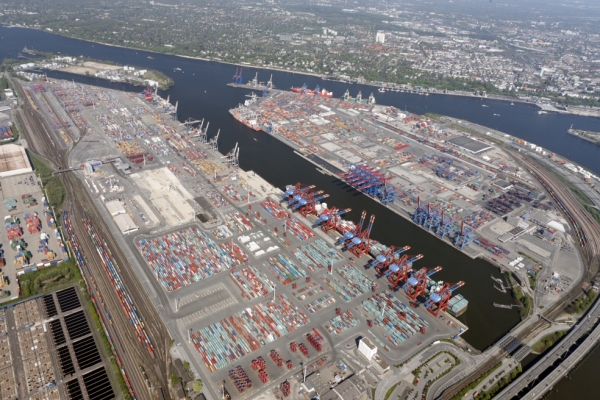In recent decades, the strategic thinking of shipping lines, private port firms and port authorities has been approached from various analytical perspectives. The introduction of constructs and theories from management research has allowed maritime and port studies to make substantial progress in the understanding of firms’ behaviour, organizational challenges and public–private interactions. In particular, management disciplines such as strategic management, operations management, human resources management and environmental management have had a notable influence on maritime and port research, in terms of theory transfer and application.
There is a growing urgency to apply theories and concepts used in management disciplines to capture the complexity and the economic underpinnings of specific strategic behaviours such as collaboration, (vertical) integration, internationalization, network management and cluster management. More specifically, ports have been challenged by a large array of environmental (for example, climate changes, carbon footprint and so on), technological (for example, vessel and engine innovative design, energy-saving process, low-emission fuels, ICT development and so on) and demand changes (for example, emerging trade lanes, services re-routing and so on) that have imposed unprecedented pressure on firm executives and public managers in the strategic re-thinking of the competitive dynamics inside the logistics chain. The breaking of competitive boundaries has also required shipowners, port firms and public port authorities to reframe the geographic scope of their business and to revisit their strategic ambitions.
Maritime and port logistics is a research discipline which is now ready to overtake the thematic and theoretical fragmentation which characterized previous years. Its intrinsic nature and relentless dynamism has imposed an analytical lens strongly relying on practical evidence but solidly grounded in interdisciplinary constructs. The uniqueness of this industry provides a fruitful empirical groundwork that invites scholars to more advanced research objectives. Future outcomes should reach beyond the boundaries of maritime and port research and contribute to fundamental research and theory building in broader academic disciplines such as management and strategy.
The Annual Conference of the International Association of Maritime Economists (IAME 2013) took place from 3 to 5 July 2013 in Marseille. Co-organized by Kedge Business School (France), University of Genoa (Italy), University of Naples ‘Parthenope’ (Italy) and IFSTTAR (Paris), the Conference theme was ‘Managing complexity in shipping and port markets: Firms’ business models, co-opetitive games and innovative public-private interactions’. A specific theme has been selected for this Maritime Economics & Logistics (MEL) Special Issue. It deals with ‘Strategies in maritime and port logistics’, a topic that is highly relevant in light of the turbulent times the shipping industry has gone through in recent years. Changes triggered by internal and external factors have affected the world economy and are leading to new paradigms and to the need for new business models and strategies.
These needs were mentioned by the various IAME 2013 conference keynote speakers, namely Dr Jan Hoffman (Chief, Trade Facilitation Section UNCTAD), Mr Francis Vallat (President, French Maritime Cluster & European Network of Maritime Clusters) and Mr Nicolas Sartini (Vice President Executive, CMA–CGM). All of them emphasized the new market conditions, the need to redraw strategies and to rethink the way of doing business. Analogous matters were shared by panellists of the special round table on ‘Strategies and business models in the cruise industry’ chaired by Dr Assunta Di Vaio (University of Naples ‘Parthenope’), moderated by Mr Masucci (Vice President, Italian Maritime Cluster), and that included distinguished panellists such as Mr Eschena (MSC Cruise France), Mr Pourbaix (Costa Crociere) and Dr Pallis (MedCruise).
PortEconomics members Pierre Cariou and Francesco Parola along with Claudio Ferrari edited this special issue 47(1), that covers some of the cutting-edge research themes and challenges raised by ongoing transformations in maritime and port logistics. Maritime logistics has been recognized as an emerging discipline given the growing and varied demands of shippers and the rapidly changing role of shipping and ports in the context of global supply chains. Academics have become conscious of the need to integrate logistics concepts in maritime transportation and port businesses. The rationale of this Special Issue is to advance understanding in maritime and port logistics by exploring the value of existing theoretical concepts from management and strategy research.
The contributions included in it address some of the important management issues faced by the industry in different parts of the world in an interdisciplinary manner. Extending discussions that have been held at events like the International Association of Maritime Economists (IAME), or within the special interest group of the association, the Port Performance Research Network (PPRN), leading maritime scholars generate knowledge on how cruise lines and cruise ports have developed their structures and strategies to efficiently and effectively serve the growth and the globalization of the industry and addresses the challenges this growth brings.
Table of Contents
The table of contents is as follows:
- Proposing a common platform of shipping cost analysis of the Northern Sea Route and the Suez Canal Route, Masahiko Furuichi and Natsuhiko Otsuka
- Assessing the intermodal value proposition of shipping lines: Attitudes of shippers and forwarders, Roy van den Berg and Peter W de Langen
- Corporate strategies and profitability of maritime logistics firms, Francesco Parola, Giovanni Satta and Photis M Panayides
- Strategic levers of port authorities for industrial ecosystem development, Rick M A Hollen, Frans A J van den Bosch and Henk W Volberda
- Entry mode choices of rapidly internationalizing terminal operators: The determinants of the degree of control on foreign ventures, Giovanni Satta and Luca Persico
PortEconomics provides you the Guest Editorial and invites you to access all studies @ the MEL website












